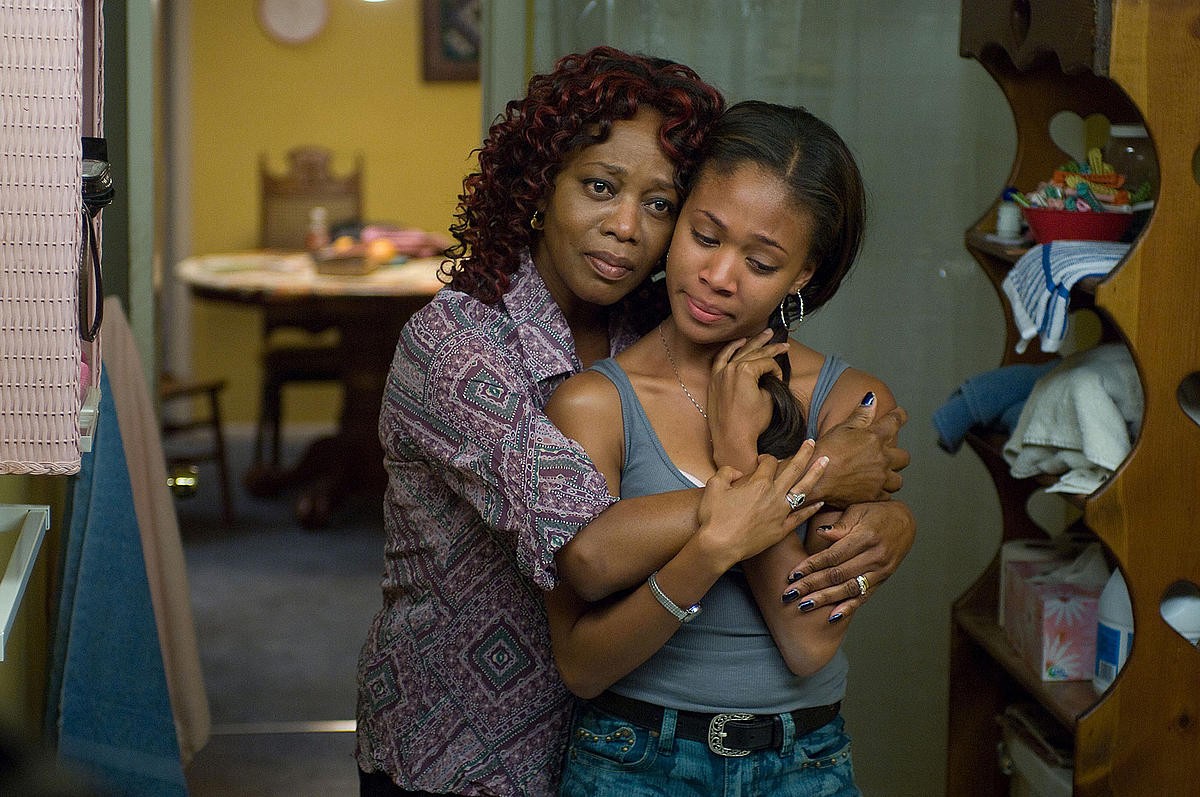
(American Violet opens tomorrow in Charlotte. Here is Curt Holman's review from the Atlanta Creative Loafing.)
Few cinematic comparisons can be as dismissive as likening a film to a made-for-TV movie or a Hallmark Hall of Fame production. The label serves as shorthand for obvious, unchallenging screen stories. The exceptions tend to be forgotten, such as 1980’s fine Gideon’s Trumpet, in which Henry Fonda played an elderly small-timer whose case led to the landmark Supreme Court ruling that criminal defendants have the right to an attorney.
Director Tim Disney’s new drama American Violet feels a lot like a made-for-TV movie but doesn’t transcend the genre like Gideon’s Trumpet. It follows a similar formula in dramatizing the case of Dee Roberts (Nicole Beharie), a waitress and mother to four young daughters, who’s wrongfully accused and arrested for being a drug dealer. Under enormous pressure to plead guilty and go free as a convicted felon, Dee ultimately accepts ACLU help to sue the district attorney (Michael O’Keefe) for racism in enforcing drug laws.
American Violet chillingly portrays the police's shock-and-awe tactics as they invade housing projects, as well as Dee’s 21-day prison ordeal and subsequent unemployability. With an ACLU outsider (Tim Blake Nelson) and a reluctant good ol’ boy lawyer (Will Patton) on Dee’s team, American Violet builds to some satisfying legal brinkmanship during the lawsuit's depositions. It inevitably struggles, however, to keep the focus on Dee during the courtroom wrangling.
Despite the strength of the cast, American Violet’s characters prove one-dimensional without exception, including Charles Dutton as a passionate community preacher, Alfre Woodard as Dee’s distraught mother, and Xzibit as Dee’s abusive ex-husband. Even the conflicts of Patton’s role, who puts friendships at risk in the name of justice, seem underdeveloped.
Although Woodard’s character describes her daughter as being “no angel,” Dee’s so saintly that it’s difficult to connect with her beyond feeling sympathy for her plight. In one of the weirdest twists, Dee argues for custody of her children before the very D.A. she’s suing, a twist that seems just weird enough to be plausible.
American Violet is the kind of docudrama that can inspire you to research the actual people on which it's based (in real life, Regina Kelly sued D.A. John Paschall). But in its justifiable anger over the drug war’s legal inequities, American Violet flattens out some potentially fascinating people.
